Vauxhall Mokka vs Toyota Yaris - Differences and prices compared
Compare performance (281 HP vs 280 HP), boot space and price (23000 £ vs 21900 £ ) at a glance. Find out which car is the better choice for you – Vauxhall Mokka or Toyota Yaris?
Costs and Efficiency:
Price and efficiency are key factors when choosing a car – and this is often where the real differences emerge.
Toyota Yaris has a minimal advantage in terms of price – it starts at 21900 £ , while the Vauxhall Mokka costs 23000 £ . That’s a price difference of around 1191 £.
Fuel consumption also shows a difference: Toyota Yaris manages with 3.80 L and is therefore clearly perceptible more efficient than the Vauxhall Mokka with 4.90 L. The difference is about 1.10 L per 100 km.
Engine and Performance:
Power, torque and acceleration say a lot about how a car feels on the road. This is where you see which model delivers more driving dynamics.
When it comes to engine power, the Vauxhall Mokka has a minimal edge – offering 281 HP compared to 280 HP. That’s roughly 1 HP more horsepower.
In acceleration from 0 to 100 km/h, the Toyota Yaris is slight quicker – completing the sprint in 5.50 s, while the Vauxhall Mokka takes 5.90 s. That’s about 0.40 s faster.
In terms of top speed, the Toyota Yaris performs minimal better – reaching 230 km/h, while the Vauxhall Mokka tops out at 209 km/h. The difference is around 21 km/h.
There’s also a difference in torque: Toyota Yaris pulls slightly stronger with 390 Nm compared to 345 Nm. That’s about 45 Nm difference.
Space and Everyday Use:
Whether family car or daily driver – which one offers more room, flexibility and comfort?
Both vehicles offer seating for 5 people.
In curb weight, Toyota Yaris is a bit lighter – 1090 kg compared to 1294 kg. The difference is around 204 kg.
In terms of boot space, the Vauxhall Mokka offers a bit more room – 350 L compared to 286 L. That’s a difference of about 64 L.
In maximum load capacity, the Vauxhall Mokka performs slightly better – up to 1105 L, which is about 170 L more than the Toyota Yaris.
When it comes to payload, Toyota Yaris noticeable takes the win – 525 kg compared to 400 kg. That’s a difference of about 125 kg.
Who wins the race in the data check?
The Toyota Yaris holds a very small edge in the objective data comparison.
This result only shows which model scores more points on paper – not which of the two cars feels right for you.
Costs and Consumption
View detailed analysis
Engine and Performance
View detailed analysis
Dimensions and Body
View detailed analysis

Toyota Yaris
Vauxhall Mokka
The Opel Mokka cuts a smart, modern silhouette that feels right at home in the city while still turning heads on the open road. It's a practical, easy-to-live-with crossover that blends comfy driving manners with enough flair and tech to keep daily commutes interesting — and it won’t make you regret trading up.
details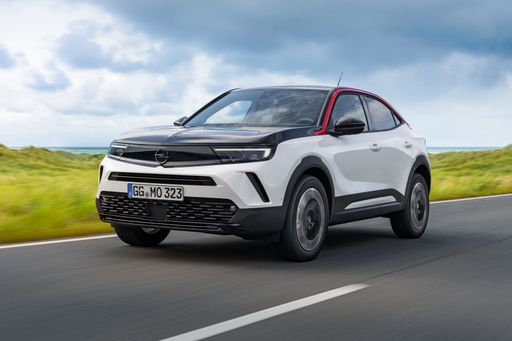
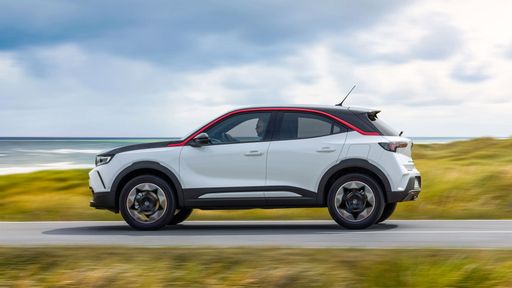
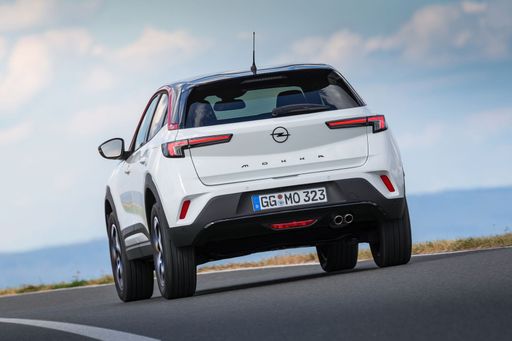
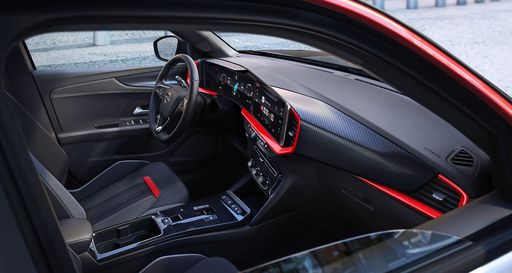
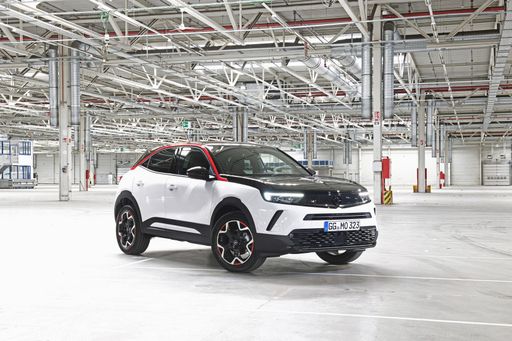
Toyota Yaris
The Toyota Yaris is a sprightly city hatch that packs clever packaging, surprising comfort and fuel-sipping manners into a neat, easy-to-park package. It rewards sensible buyers with low running costs, friendly ergonomics and a forgiving drive, delivered with Japanese reliability and just enough personality to make errands feel a little less ordinary.
details

Costs and Consumption |
|
|---|---|
|
Price
23000 - 40500 £
|
Price
21900 - 46700 £
|
|
Consumption L/100km
4.9 - 5.7 L
|
Consumption L/100km
3.8 - 9.5 L
|
|
Consumption kWh/100km
15.4 - 18.5 kWh
|
Consumption kWh/100km
-
|
|
Electric Range
336 - 403 km
|
Electric Range
-
|
|
Battery Capacity
51 kWh
|
Battery Capacity
-
|
|
co2
0 - 129 g/km
|
co2
87 - 215 g/km
|
|
Fuel tank capacity
44 L
|
Fuel tank capacity
36 - 50 L
|
Dimensions and Body |
|
|---|---|
|
Body Type
SUV
|
Body Type
Hatchback
|
|
Seats
5
|
Seats
4 - 5
|
|
Doors
5
|
Doors
3 - 5
|
|
Curb weight
1294 - 1672 kg
|
Curb weight
1090 - 1356 kg
|
|
Trunk capacity
310 - 350 L
|
Trunk capacity
141 - 286 L
|
|
Length
4150 mm
|
Length
3940 - 3995 mm
|
|
Width
1787 mm
|
Width
1745 - 1805 mm
|
|
Height
1506 - 1535 mm
|
Height
1455 - 1500 mm
|
|
Max trunk capacity
1060 - 1105 L
|
Max trunk capacity
935 L
|
|
Payload
388 - 400 kg
|
Payload
289 - 525 kg
|
Engine and Performance |
|
|---|---|
|
Engine Type
Electric, Petrol MHEV, Petrol
|
Engine Type
Full Hybrid, Petrol
|
|
Transmission
Automatic, Manuel
|
Transmission
Automatic, Manuel
|
|
Transmission Detail
Reduction Gearbox, Dual-Clutch Automatic, Manual Gearbox
|
Transmission Detail
CVT, Manual Gearbox, Automatic Gearbox
|
|
Drive Type
Front-Wheel Drive
|
Drive Type
Front-Wheel Drive, All-Wheel Drive
|
|
Power HP
136 - 281 HP
|
Power HP
116 - 280 HP
|
|
Acceleration 0-100km/h
5.9 - 9 s
|
Acceleration 0-100km/h
5.5 - 9.7 s
|
|
Max Speed
150 - 209 km/h
|
Max Speed
175 - 230 km/h
|
|
Torque
230 - 345 Nm
|
Torque
390 Nm
|
|
Number of Cylinders
3
|
Number of Cylinders
3
|
|
Power kW
100 - 207 kW
|
Power kW
85 - 206 kW
|
|
Engine capacity
1199 cm3
|
Engine capacity
1490 - 1618 cm3
|
General |
|
|---|---|
|
Model Year
2024 - 2025
|
Model Year
2024 - 2025
|
|
CO2 Efficiency Class
A, C, D
|
CO2 Efficiency Class
B, G
|
|
Brand
Vauxhall
|
Brand
Toyota
|
What drive types are available for the Vauxhall Mokka?
The Vauxhall Mokka is offered with Front-Wheel Drive.




